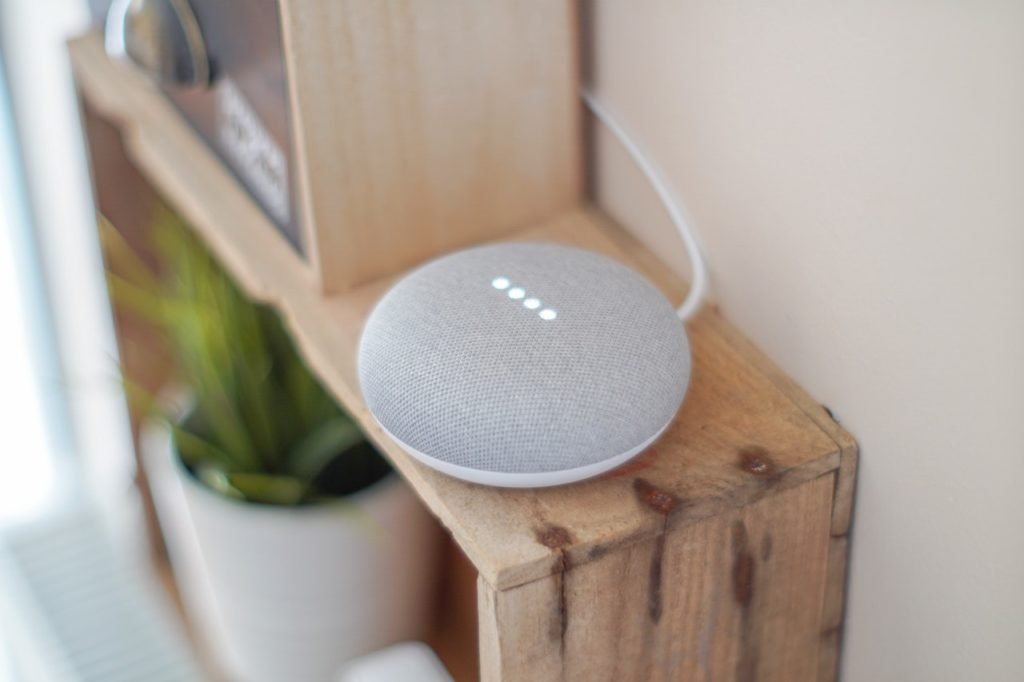IoT Devices in Seniors’ Homes – Part 1

Currently, there are many internet-connected (IoT) devices available for homes and businesses. Seniors and caregivers may find some peace of mind from the safety benefits of these devices. This post is the first in a three-part series discussing IoT devices. I’ll discuss various IoT devices and what value they can provide seniors and their caregivers. Additionally, I’ll discuss possible privacy concerns using IoT devices.
This post is part of the series Protecting Senior Citizens Online.
What is IoT?
IoT is an acronym for the Internet of Things. IoT is a connected system of computing devices embedded in objects like wireless speakers, TVs, thermostats, and doorbells. These devices use your home’s WiFi network to communicate with the internet, and frequently each other.
Keep reading to learn more about IoT devices and the value they may (or may not) provide seniors in their homes.
Smart Speakers
Smart speakers are WiFi-connected speakers that accept voice commands. They can play streaming music, respond to questions, place phone calls, interact with apps you use, and control other connected devices on your home network. Some have other connectivity options like Bluetooth, HDMI, and 3.5mm wired headphones.

There are three main competing brands of smart speakers: Amazon Echo, Apple HomePod, and Google Home. Users control their smart speakers with voice commands using one of three digital assistants: Amazon Alexa, Apple Siri (also on Apple computers, phones, and tablets), and Google Assistant (also installed on Android phones and tablets), respectively.
How do you choose a smart speaker?
PC Magazine did a 2019 roundup of 10 smart speakers comparing their features. Your selection will depend on the desired features, your intended use, and your budget. Are you an audiophile? Have a preference for which onboard digital assistant you’re getting? Do you already have Android and/or Apple phones or tablets? If you’re overwhelmed by your choices it’s understandable. Consult with your IT professional about which smart speaker is best suited for your needs and budget.
What value does a smart speaker provide to seniors?
One smart speaker use case valuable to seniors is summoning emergency help, or if a senior has fallen and is unable to get up on their own. Reminders can be set using Alexa, Assistant, or Siri for upcoming appointments, or to take medication at certain times of the day. Seniors can get answers to questions using Alexa, Assistant, or Siri the same way they could if they were Googling something from a web browser. There are many smart speaker uses that could benefit seniors.
Privacy Concerns Using Smart Speakers
Many articles exist about privacy concerns using smart speakers. That opens up the larger, thornier issue of online privacy, generally. See my upcoming blog post, Free Online Services: You Are the Product, for a broader discussion of online privacy.
Amazon Echo and Google Home use third-party extensions, enabling users to use voice commands for services. Examples: asking to watch a movie on Netflix and having the speaker call up Netflix on your smart TV and queue it up. Ordering your double-shot latte from Starbucks and choose the nearest one to pick it up. The companies producing third-party extensions collect your data and sell it to advertisers each time you make a request.
Amazon Echo and Google Home record every interaction with their users and link that data with your Amazon or Google account. Forever. Amazon uses its user data to deliver more precisely targeted ads to you for products it thinks you want or need. Google uses its user data for a similar purpose, selling it to advertisers, who in turn deliver more targeted ads to you.
Apple HomePod appears to be the only one of the three major brands that does not link your voice commands to your account. Apple apparently analyzes all vocal data anonymously and then eventually deletes it. HomePod doesn’t support any third-party extensions either. The result is something less convenient and extensible, but more private than its competitors.
Always exercise caution with any device connected to your home network.
Sources:
- IoTLineup.com: IoT Devices – Home Automation
- PC Magazine: The Best Smart Speakers for 2019
- Security Boulevard: The Privacy Risks of Smart Speakers…
This post is part of the series Protecting Senior Citizens Online. Be sure to check back for other posts in this series.
Copyright © 2019 Patrick M. Baker, Prime of Life Tech